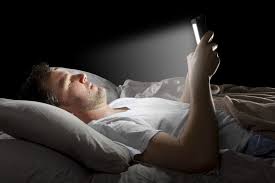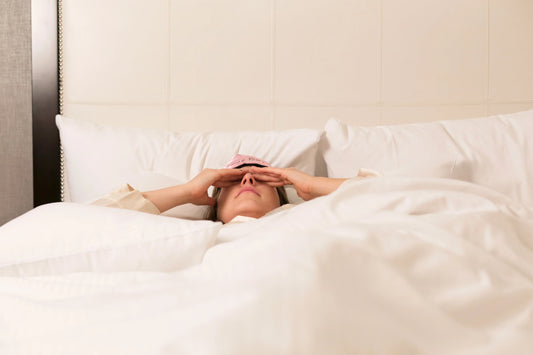When it comes to restful, rejuvenating sleep, hormones play a crucial role in keeping our internal systems in balance. From the regulation of our sleep-wake cycle to stress management and mood stabilization, hormones are at the center of our overall well-being. That’s why Hormonal Health Awareness is so important, especially when it comes to improving the quality of your sleep.
Many people suffer from sleep disturbances—whether it's trouble falling asleep, waking up frequently, or not feeling rested even after a full night's sleep. What they may not realize is that hormone imbalances could be the root cause. By understanding the hormones that regulate sleep and learning how to balance them, we can take significant steps toward better sleep and, ultimately, better health.
Key Hormones That Affect Sleep
Several hormones directly influence our ability to get a good night's sleep:
-
Melatonin, the sleep hormone, controls the sleep-wake cycle, ensuring you feel tired in the evening and wakeful in the morning. Disruptions in melatonin production, often due to lifestyle or stress, can cause insomnia or difficulty falling asleep.
-
Cortisol, often referred to as the stress hormone, naturally declines in the evening, allowing for relaxation and sleep. Elevated cortisol levels due to chronic stress can cause restlessness and frequent waking at night.
-
Progesterone has calming effects and promotes restful sleep, especially in women. When progesterone levels fluctuate, particularly during PMS or menopause, sleep disturbances often follow.
-
Estrogen helps regulate body temperature and affects REM sleep. As estrogen levels drop during menopause, night sweats and insomnia become common issues that interrupt sleep.
-
Testosterone in both men and women helps regulate sleep, with low levels contributing to conditions like sleep apnea and decreased sleep efficiency.
-
Thyroid hormones control metabolism and energy. An overactive thyroid (hyperthyroidism) can cause difficulty falling asleep, while an underactive thyroid (hypothyroidism) can lead to fatigue and excessive sleepiness.
How Hormonal Imbalances Disrupt Sleep
When any of these hormones are out of balance, sleep can suffer. For example, low melatonin production due to excessive exposure to artificial light at night can delay your ability to fall asleep. High cortisol levels from stress can make it difficult to stay asleep. And for women, hormonal changes during menstrual cycles, pregnancy, and menopause can lead to disrupted sleep patterns, making it harder to get the rest they need.

Without balanced hormones, you may not reach the deep, restorative stages of sleep like REM and slow-wave sleep, leading to poor sleep quality, grogginess, and even long-term health issues.
Tips to Balance Hormones for Better Sleep
Maintaining hormonal balance is key to improving sleep quality. Here are some tips and lifestyle habits to help regulate the hormones that impact your sleep:
-
Establish a Sleep Routine: Going to bed and waking up at the same time every day helps regulate melatonin production and supports your natural circadian rhythm. Aim for at least 7-9 hours of sleep each night.
-
Manage Stress: Practice relaxation techniques such as deep breathing, meditation, or yoga to lower cortisol levels. Reducing stress throughout the day can help you unwind more easily at night.
-
Eat a Hormone-Balancing Diet: Incorporate foods rich in omega-3 fatty acids (such as salmon and flaxseed), which help balance hormones, as well as magnesium-rich foods (such as leafy greens and almonds), which promote relaxation and better sleep.
-
Limit Caffeine and Alcohol: These can interfere with melatonin production and increase cortisol, negatively affecting sleep quality. Try to limit caffeine intake after noon, and avoid alcohol close to bedtime.
-
Exercise Regularly: Physical activity helps regulate hormone levels, including cortisol and melatonin. Just be mindful to avoid intense workouts late in the evening, as they can sometimes elevate cortisol levels and make it harder to fall asleep.
-
Support Hormonal Changes: For women going through menopause or PMS, hormone therapy or natural supplements (like black cohosh or evening primrose oil) may help regulate estrogen and progesterone levels, reducing hot flashes and improving sleep.
-
Create a Sleep-Conducive Environment: Reducing exposure to artificial light before bed, keeping the room cool, and using calming scents like lavender can help stimulate melatonin production and create an ideal sleep environment.
Conclusion: Achieving Restful Sleep Through Hormonal Health Awareness
Hormonal health awareness is vital for understanding how hormones influence our sleep and overall well-being. By taking steps to balance hormones naturally—through lifestyle adjustments, diet, stress management, and sometimes medical support—we can improve sleep quality and feel more refreshed and energized throughout the day.
For those who struggle with sleep due to hormonal issues, it’s important to recognize the role that hormone balance plays in your nightly rest. By prioritizing hormonal health, you can create a solid foundation for healthier sleep and, by extension, a healthier life.
At Sleep Artisan, we’re committed to supporting your journey to better sleep through wellness-driven solutions. Stay tuned for more ways to optimize your sleep and well-being!





